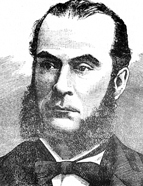

In this respect he was close to the thinking of Karl Krause (1781–1832), a German philosopher who regarded the law as having an essential role in the formation of humanity’s moral conscience. He argued that the maintenance of social harmony, based on the close relationship of the ideas of “good” and “order”, was an integral part of the rational destiny that it was Man’s duty to fulfil, inasmuch as “All men are people, all have an equal spiritual value, because in all humanity a free and intelligent will has the same value: for this reason all must respect the rights of all, recognizing in them the same goal, the same nature” (O Fundamento do Direito de Punir, p. 17). In this way, and taking a utilitarian view of Krause’s philosophy, LMJ defines as a crime any act that could threaten that harmony.
In Portugal, discussion of criminality had a special relevance and importance, given that the first Penal Code had been published the previous year, in 1852, and LMJ’s discussion of the topic would distinguish him as one of the nineteenth century’s most respected criminologists. Along with Francisco António Fernandes da Silva Ferrão (1798–1874) and António Ayres de Gouveia (1828–1916), LMJ was a leading figure in the evaluation and revision of the Portuguese penal system over the following decades, playing an integral part in the Penal Code Revisory Commission.
Declining to enter the judiciary, LMJ settled himself in Lisbon, where he practised as a lawyer for many years, defending many causes célèbres, and where he published, as early as 1853–43, his four-volume Comentário ao Código Penal Português [Commentary on the Portuguese Penal Code]. The work emerged, according to LMJ, as a result of two fundamental outlooks. The first, of a general nature, was related to the fact that all and any legislative code requires complementary explanations (“The most perfect Code lacks commentaries. The law should establish only general principles: to think that it can avoid and resolve all the difficulties that in practice present themselves is to nurse an illusory expectation”; Comentário do Código Penal Português, p. v). The other, more specific aspect, related to the need for a revision of the Code, since, according to LMJ, it lacked a systematic unity and method, being based on a legal framework that was unclear and at times disproportionate, and was unduly restrictive towards the freedom of conscience and rights of association.
